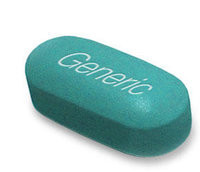In the long saga of generics pre-emption, The New York Times is adding its opinion to the argument of whether generics makers are liable for injuries caused by their products. The newspaper believes that ‘manufacturers should bear responsibility for making sure their drugs are safe and effective’ and is urging US Congress to amend laws to allow patients to sue generics manufacturers.
Generics drugmakers should be held responsible for injuries
Home/Pharma News
|
Posted 29/03/2013
 0
Post your comment
0
Post your comment

The case concerns Ms Karen Bartlett, who suffered a rare hypersensitivity reaction, which caused burn-like lesions on two-thirds of her body and left her with permanent near-blindness. She sued Mutual Pharmaceutical for alleged design defects under New Hampshire law and was awarded a US$21 million jury award.
Mutual Pharmaceutical appealed to the Supreme Court, which ruled in 2011 that patients could not sue generics manufacturers for failing to warn them adequately about drug risks because, under existing laws and regulations, generics makers must have the same labels as their brand-name counterparts [1]. Ms Bartlett’s case is due to be heard before the US Supreme Court during March 2013.
FDA plays an important role by approving drugs based on reduced clinical trial data and then monitoring what happens when the drugs are widely used. However, lawsuits are important too, as deterrents to negligence or wrongdoing. If the Supreme Court insists on shielding generics manufacturers from consumer lawsuits, then maybe Congress ought to amend the laws.
Another option would be for patients who use generic drugs to sue the brand-name drugmaker responsible for the drug’s labelling. This scenario has already been tested in the US Supreme Court of Alabama, which ruled that Pfizer could be sued by a patient who had only used generic versions of its gastric reflux medicine Reglan (metoclopramide) [2].
Editor’s comment
What do you think? Please feel free to share your thoughts via email or in the comments section below. What are your views on generics pre-emption? Do you think that patients taking generic drugs should be able to sue the generics manufacturer? Or is it right that the brand-name drugmaker should be held responsible for the drug labelling?
Related articles
Pfizer asks US Court to reconsider generic Reglan ruling
Generic pre-emption raises its ugly head again
Generics will not have to change their labelling
References
1. GaBI Online - Generics and Biosimilars Initiative. Generics manufacturers do not have to change drug safety labels in the US [www.gabionline.net]. Mol, Belgium: Pro Pharma Communications International; [cited 2013 Mar 29]. Available from: www.gabionline.net/Generics/News/Generics-manufacturers-do-not-have-to-change-drug-safety-labels-in-the-US
2. GaBI Online - Generics and Biosimilars Initiative. Brand-name drugmaker can be sued for harm caused by generic drug [www.gabionline.net]. Mol, Belgium: Pro Pharma Communications International; [cited 2013 Mar 29]. Available from: www.gabionline.net/Pharma-News/Brand-name-drugmaker-can-be-sued-for-harm-caused-by-generic-drug
Permission granted to reproduce for personal and educational use only. All other reproduction, copy or reprinting of all or part of any ‘Content’ found on this website is strictly prohibited without the prior consent of the publisher. Contact the publisher to obtain permission before redistributing.
Source: The New York Times
Guidelines
US guidance to remove biosimilar comparative efficacy studies
New guidance for biologicals in Pakistan and Hong Kong’s independent drug regulatory authority
Policies & Legislation
EU accepts results from FDA GMP inspections for sites outside the US
WHO to remove animal tests and establish 17 reference standards for biologicals
Formycon signs new aflibercept biosimilar pacts and launches ranivisio in Europe

Home/Pharma News Posted 13/11/2025
Bio-Thera and Stada expand biosimilars alliance to include tocilizumab

Home/Pharma News Posted 20/10/2025
The best selling biotechnology drugs of 2008: the next biosimilars targets








Post your comment